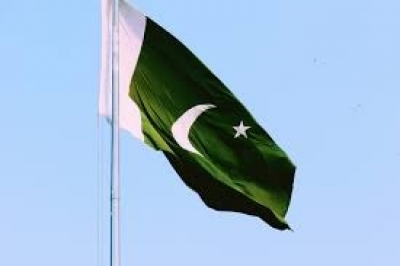New Delhi, Aug 21 (IANS) Pakistan stands at a critical juncture. The convergence of poverty, unemployment, demographic pressure and inequality reflects a deeply rooted crisis with far-reaching consequences for a country in which 44.7 per cent of the population lives below the poverty line, according to an article in the Pakistan Observer newspaper.
Pakistan’s per capita income has stagnated and even declined in recent years, reflecting deepening economic challenges.
According to the Pakistan Bureau of Statistics, during the fiscal year 2022-2023, the country recorded an 11.38 per cent drop in per capita income, falling from $1,766 in 2022 to $1,568 in 2023. This decline coincided with a sharp contraction in the overall economy, which shrank by $33.4 billion, from $375 billion to $341.6 billion.
The stagnation is largely attributed to persistent structural issues, including political instability, inflation, currency depreciation and weak industrial output, the article in the widely read English daily further states.
Compared to regional peers, Pakistan’s GDP per capita remains significantly lower — estimated at $6,950 in 2025. The economic disparity between urban and rural regions further entrenches inequality, the article points out.
According to the World Bank’s 2025 findings, nearly 44.7 per cent of the population lives below the poverty line, based on the revised threshold of $4.20 per person per day for lower-middle-income countries, a staggering figure that underscores the scale of deprivation.
Even more alarming is that 16.5 per cent of the population, around 39.8 million people, live in extreme poverty, earning less than $3 per day, a sharp rise from previous estimates of 4.9 per cent.
The article, written by Assadullah Channa, points out that urban centres like Karachi, Lahore and Islamabad benefit from better infrastructure, diversified economies and greater access to services. In contrast, rural areas remain underdeveloped, with limited access to clean water, electricity, healthcare and education. Agriculture, the primary livelihood in these regions, suffers from low productivity and outdated practices.
Provincial disparities also persist. Punjab and Sindh attract more investment and development, while Balochistan and parts of Khyber Pakhtunkhwa lag behind due to historical neglect, weak governance. This uneven distribution of resources fuels social discontent and marginalisation.
Inflation, particularly in essential commodities, has become a chronic challenge in Pakistan, driven by currency depreciation, global market volatility and domestic inefficiencies. In July 2025, annual inflation rose to 4.1 per cent, up from 3.2 per cent in June, marking the highest level since December 2024. The impact is most severe on food and energy prices.
The erosion of purchasing power among lower-income groups has led to widespread hardship, with many households forced to cut back on meals, education and healthcare. Public investment in education and health is critically low, with education spending reduced by 44 per cent in the latest budget and health expenditure hovering around 1 per cent of GDP.
–IANS
sps/dpb
Disclaimer
The information contained in this website is for general information purposes only. The information is provided by BhaskarLive.in and while we endeavour to keep the information up to date and correct, we make no representations or warranties of any kind, express or implied, about the completeness, accuracy, reliability, suitability or availability with respect to the website or the information, products, services, or related graphics contained on the website for any purpose. Any reliance you place on such information is therefore strictly at your own risk.
In no event will we be liable for any loss or damage including without limitation, indirect or consequential loss or damage, or any loss or damage whatsoever arising from loss of data or profits arising out of, or in connection with, the use of this website.
Through this website you are able to link to other websites which are not under the control of BhaskarLive.in We have no control over the nature, content and availability of those sites. The inclusion of any links does not necessarily imply a recommendation or endorse the views expressed within them.
Every effort is made to keep the website up and running smoothly. However, BhaskarLive.in takes no responsibility for, and will not be liable for, the website being temporarily unavailable due to technical issues beyond our control.
For any legal details or query please visit original source link given with news or click on Go to Source.
Our translation service aims to offer the most accurate translation possible and we rarely experience any issues with news post. However, as the translation is carried out by third part tool there is a possibility for error to cause the occasional inaccuracy. We therefore require you to accept this disclaimer before confirming any translation news with us.
If you are not willing to accept this disclaimer then we recommend reading news post in its original language.

